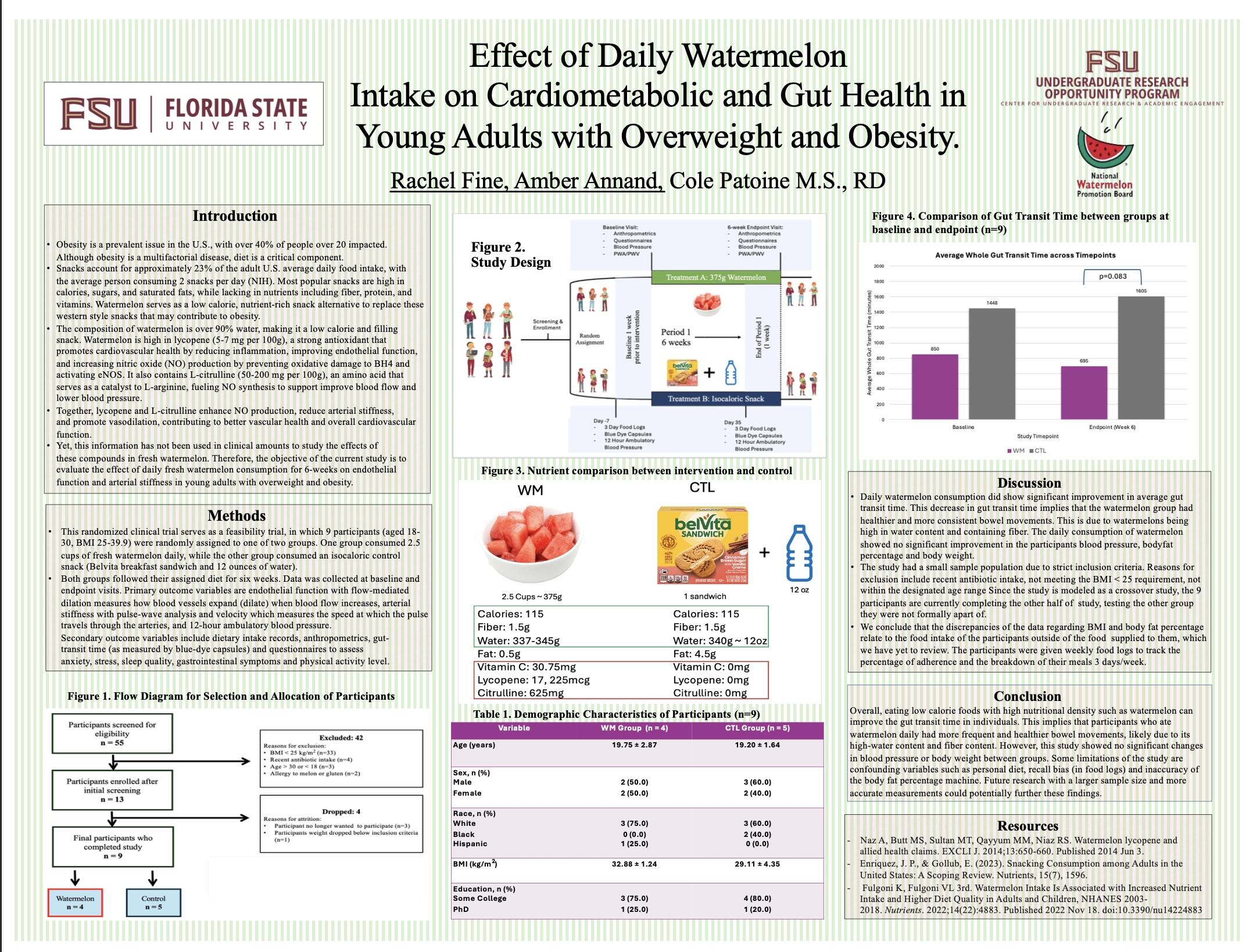Research Symposium
25th annual Undergraduate Research Symposium, April 1, 2025
Rachel Fine Poster Session 2: 10:45 am - 11:45 am/ Poster #246

BIO
Hello! My name is Rachel Fine, and I am an Exercise Physiology undergraduate student planning to attend Medical School in the future. I am currently apart of the undergraduate Research Opportunity Program, where I have been working under the Gut Biome lab at the college of Education, Health, and Human Sciences as a Research Assistant. I am born and raised from Tampa, Florida, where I attended Steinbrenner High School. I played softball (both travel and high school) for over 8 years, which has led me to love sports medicine.
Effect of Daily Watermelon Intake on Cardiometabolic and Gut Health in Young Adults with Overweight and Obesity
Authors: Rachel Fine, Cole PatoineStudent Major: Exercise Physiology
Mentor: Cole Patoine
Mentor's Department: Nutrition Mentor's College: Education, Health, and Human Sciences Co-Presenters: Amber Annand
Abstract
The Dietary Guidelines for Americans recommend eating 1.5-2.5 cups of whole fruit daily. Watermelon is rich in lycopene and L-citrulline, which support heart health. Lycopene, a strong antioxidant, helps reduce inflammation, improve blood vessel function, and increase nitric oxide (NO) production, which relaxes blood vessels through vasodilation. L-citrulline, an amino acid, boosts NO levels by increasing L-arginine, improving blood flow and lowering blood pressure. Together, these compounds may improve vascular health, but their combined effects in fresh watermelon are not well studied. This study aims to test how daily watermelon consumption for six weeks affects blood vessel function and stiffness in young adults with overweight and obesity. This small clinical trial includes ten participants (ages 18-30, BMI 30-39.9), randomly assigned to eat either 2.5 cups of watermelon daily or an isocaloric control snack (Belvita breakfast sandwich and water). Data will be collected at the start and end of the study. Key measures include blood vessel function, arterial stiffness, and blood pressure. Other factors like diet, weight, gut health, stress, sleep, and activity levels will also be tracked. This information applies directly to the recommended amount of whole fruit intake for day, which would prove a correlation in eating the daily value and better metabolic health. Since the target participants were obese people categorized in the BMI scale, the data can be used to encourage fruit intake to reduce overall weight.
Keywords: Nutrition, medicine, food

